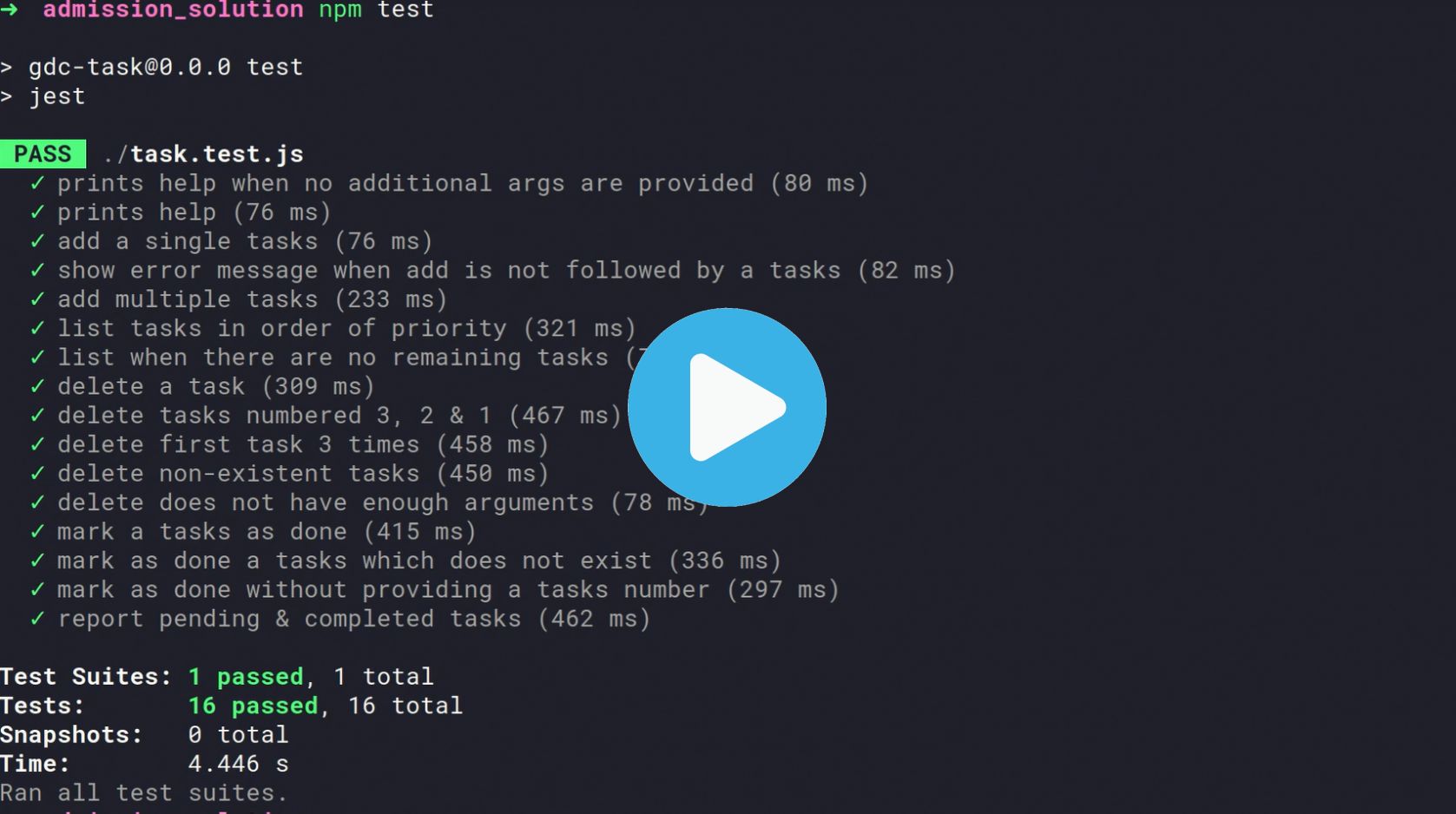-
Install Python: Python is usually installed by default on most modern systems. To check what your currently have, open a terminal and run the following command:
python3 --versionThis should output some information on the installed Python version. You can also install python by following these instructions: https://installpython3.com/
-
You are expected to write the code in
task.pyfile. -
Once you are done with the changes you should be able to execute the task app by running the following command from the terminal.
On Windows:
.\task.batOn *nix:
./task.sh
You need to have npm installed in your computer for this problem. It comes with Node.js and you can get it by installing Node from https://nodejs.org/en/
Run npm install to install all dependencies.
Now run npm test and you will see all the tests failing. As you fill in each functionality, you can re-run the tests to see them passing one by one.
Executing the command without any arguments, or with a single argument help prints the CLI usage.
$ ./task help
Usage :-
$ ./task add 2 hello world # Add a new item with priority 2 and text "hello world" to the list
$ ./task ls # Show incomplete priority list items sorted by priority in ascending order
$ ./task del INDEX # Delete the incomplete item with the given index
$ ./task done INDEX # Mark the incomplete item with the given index as complete
$ ./task help # Show usage
$ ./task report # Statistics
Use the ls command to see all the items that are not yet complete, in ascending order of priority.
Every item should be printed on a new line. with the following format
[index] [task] [priority]
Example:
$ ./task ls
1. change light bulb [2]
2. water the plants [5]
index starts from 1, this is used to identify a particular task to complete or delete it.
Use the add command. The text of the task should be enclosed within double quotes (otherwise only the first word is considered as the item text, and the remaining words are treated as different arguments).
$ ./task add 5 "the thing i need to do"
Added task: "the thing i need to do" with priority 5
Use the del command to remove an item by its index.
$ ./task del 3
Deleted item with index 3
Attempting to delete a non-existent item should display an error message.
$ ./task del 5
Error: item with index 5 does not exist. Nothing deleted.
Use the done command to mark an item as completed by its index.
$ ./task done 1
Marked item as done.
Attempting to mark a non-existed item as completed will display an error message.
$ ./task done 5
Error: no incomplete item with index 5 exists.
Show the number of complete and incomplete items in the list. and the complete and incomplete items grouped together.
$ ./task report
Pending : 2
1. this is a pending task [1]
2. this is a pending task with priority [4]
Completed : 3
1. completed task
2. another completed task
3. yet another completed task
